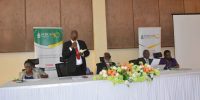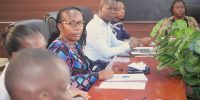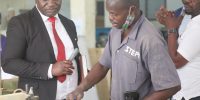The government has initiated a training program for science teachers and laboratory technicians in the Rwenzori and Tooro sub regions, with an aim to enhance them with the necessary skills to effectively teach the new curriculum.
The training that started on Monday and ending on Friday at Canon Apollo Core PTC in Fort Portal City is being conducted by the National Curriculum Development Center (NCDC).
The sessions include instructions on repairing broken laboratory apparatus to make them reusable and minimising costs.
Additionally, participants will learn how to integrate technology into practical lessons.
Dr Grace K. Baguma, the Director of NCDC, highlighted a significant gap in the skills of many laboratory technicians when it comes to repairing lab equipment. She noted that while some of them knew about setting up repairs, the current training aims to empower them to perform repairs independently.
“This time we want to give them skills in maintaining and repairing all the laboratory equipment, and for science teachers, they work with laboratory technicians. Over the years, this category has been neglected in acquiring new skills,” Dr Baguma said.
She said the new curriculum places emphasis on practical subjects thus the need for science teachers and laboratory technicians to enhance their skills due to the continuous introduction of new apparatus in laboratories.
Mr Tushabomwe Bedah, a facilitator from Kyambogo University in the Faculty of Science, pointed out that certain schools possess well-equipped laboratories, but their staff lack the knowledge to optimise their use for enhancing science teaching.
He emphasised the growing importance of Information and Communication Technology (ICT) integration, noting the need for computers in science laboratories and exploring innovative ways to incorporate technology into science teaching, particularly for computer-aided experiments.
“Now we have the component of ICT integration, these days we have computers in science laboratories and now want to see how to start using the innovation of technology in the teaching of science to help students do computer-aided experiments,” he said.
On the other hand, Mr Mutewenta Francis, a teacher at Rwetuha Seed Secondary School in Kyegegwa, observed that some schools continue to face limitations in laboratory equipment, adversely affecting students’ learning and contributing to exam failures.
He explained the difficulties of ill-equipped laboratories, where improvisation becomes necessary for students to study noting the absence of essential materials throughout the term and insufficient supplies, which negatively impact the learning process.
“Our laboratories are ill-equipped, sometimes we have to improvise to see students study, which is not easy. That is why some students who pass science know the theory part,” he explained.
He acknowledged that some teachers lack the necessary skills, emphasising that the teaching of science should be hands-on.




